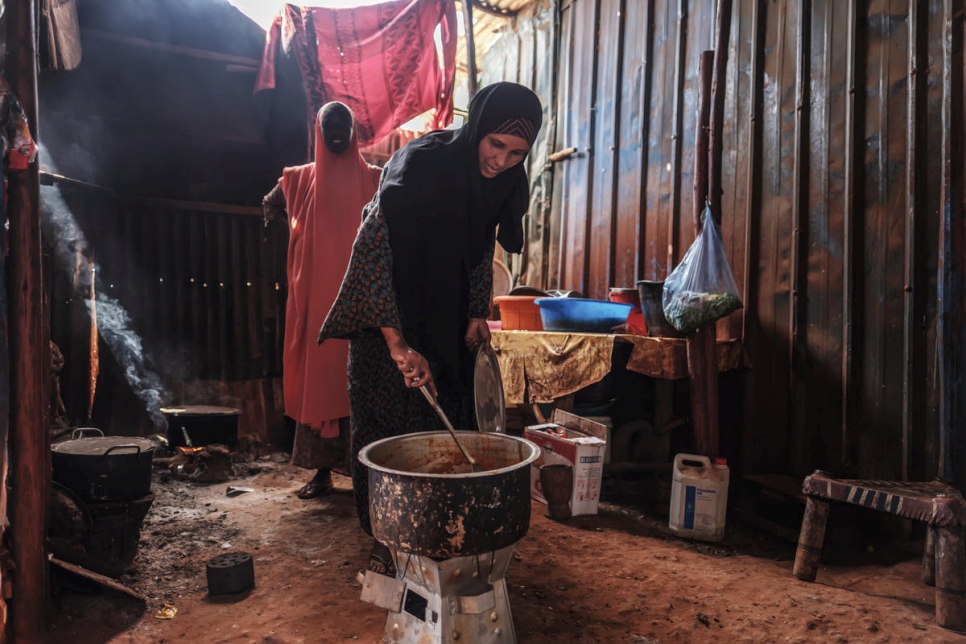Zakat and Sadaqah for Refugees
Every Zakat and Sadaqah donation means the difference between a hungry child and a table of food for families.
Photo: © UNHCR/Roger Arnold
In countries around the world, refugee families are forced to live away from their homes, amid destruction, poverty and violence. Many long for a peaceful existence.
Instead of looking forward, refugees often look back to the lives they left behind.
The UN Refugee Agency is on the ground providing families with vital support such as shelter, food and monthly cash assistance in countries like Bangladesh, Syria, Yemen and South Sudan.
million people of concern in the Middle East and North Africa
%
of refugees in Middle East and Africa under the age of 18
%
of funding met for Middle East and North Africa region
thousand Rohingya refugees living in Bangladesh
Why should I give my Sadaqah to UNHCR?
Your Sadaqah is an act of solidarity with a community that is in need of our collective support. UNHCR recognizes the long Islamic and Arab tradition of according asylum-seekers with dignity and respect. This tradition was established long before modern refugee and international law. The Holy Qur’an instructs Muslims to give protection to those who need it.
« “And (remember) when We made the house a place of return for mankind and a place of security.” – [Al-Baqara:125]
UNHCR will act as an intermediary or agent to deliver aid to the most vulnerable families in order to meet their most basic needs
- UNHCR is the only international agency mandated to protect the world’s 21 million refugees
- UNHCR leads the international action to protect people forced to flee from conflict
- UNHCR is present in 130 countries and can deploy assistance within 72 hours of a refugee emergency



Togetherness in isolation during Ramadan
Millions of Muslims around the world will observe a Ramadan like no other this year: a Ramadan of separation and isolation.
For 30 days, Muslims are required to fast — no food or water — from sunrise to sunset, as they continue with day-to-day life. It is a time for families and communities to gather and break their fast (Iftar) together. Read the full Ramadan blog post on Medium.
For thirteen days, Entesar hid in an underground cellar with her four children and her newborn baby in her arms. As bombs and bullets rained down on her home, she knew that she had to flee Syria to keep her family safe.
For the last eight years, Entesar has been living with her children and parents in Jordan’s capital, Amman. Tragically, her husband didn’t make it out of Syria alive.
Refugees like Entesar must scrimp and save, just to put a roof over their heads. Traumatized and unable to work, these families need support to build a life in a country that isn’t theirs.
Cash assistance is an efficient and secure way of helping refugee families rebuild their lives after they’ve lost everything in the brutal war.
With cash assistance, Entesar is able to withdraw a sum of money each month from an ATM, using iris-scan technology. Cash assistance gives refugees the freedom to choose how to spend their money, based on their families’ unique needs. For Entesar, this means using some of the cash she receives to pay for education and support a brighter future for her children.

Donate Today
Please help refugee families in need.


